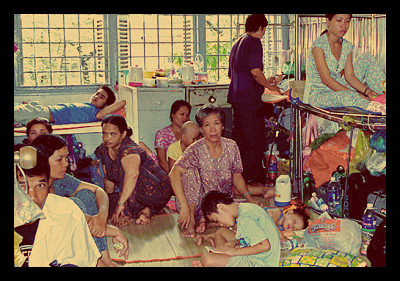Rise of Cancer in the Developing World

While many people know cancer is one of the leading causes of death globally, few realize cancer has become a significant burden on the developing world. The World Health Organization (WHO) reports more than 60 percent of new cancer cases occur in Africa, Asia, and Central and South America, concluding that cancer in the developing world accounts for more than 70 percent of all cancer deaths.
In 2012, there were 14.1 new cases of cancer, compared with 12.7 million new cases in 2008. Part of the reason for this is globally, the population is aging. Developing nations are seeing an increase in many cancers because people living longer and having a change in lifestyle. Many people in developing countries are adopting the lifestyles of those in industrialized nations and are now facing new risk factors such as poor diet, obesity and smoking. This is causing an increase in common cancers such as breast cancer, colon cancer and lung cancer.
Breast cancer was the most common cause of death in women in 2012. Treatments and testing for breast cancer that are available in industrialized countries have not yet reached the developing world. Cancers caused by infections such as cervical cancer (often caused by the Human Papilloma Virus [HPV]) also cause more deaths in the developing world because there are fewer screening and treatment programs for the disease.
As a result of gains by global health professionals, such as the reduction in infectious disease and the decrease in the child mortality rate, many more people in developing countries live to older ages. Unfortunately, work in chronic disease prevention and intervention needs to catch up. Developing countries do not have the resources to screen, prevent and treat chronic diseases such as cancer.
Global health has historically been focused on communicable (or infectious) diseases. Julio Frenk, Dean of the Harvard School of Public Health, says there needs to be a switch in thinking that allows for a more comprehensive view of global health. First, because communicable and non-communicable infections are not as separate as once thought. The WHO estimates that one fifth of cancers are caused by communicable infections such as HIV, HPV, hepatitis B virus, and Helicobacter pylori. In addition, infections, hunger and maternal deaths are no longer the only problems of the poor. The world’s poor people are increasingly prone to non-communicable diseases and injury.
There is a misconception that because there are “bigger fish to fry,” such as infectious diseases and poverty, people should not worry about cancer. However, in many middle-income countries, cancer is now one of the leading causes of death and yet it still receives little attention. There is also the issue of having access to screening be inequitable. In middle-income countries, only the most affluent people have access to cancer screening.
Fortunately, information is beginning to be spread about the need to add cancer to the global public health agenda. Bill and Melinda Gates gave a $50 million grant to create the Alliance for Cervical Cancer Prevention.
– Elizabeth Brown
